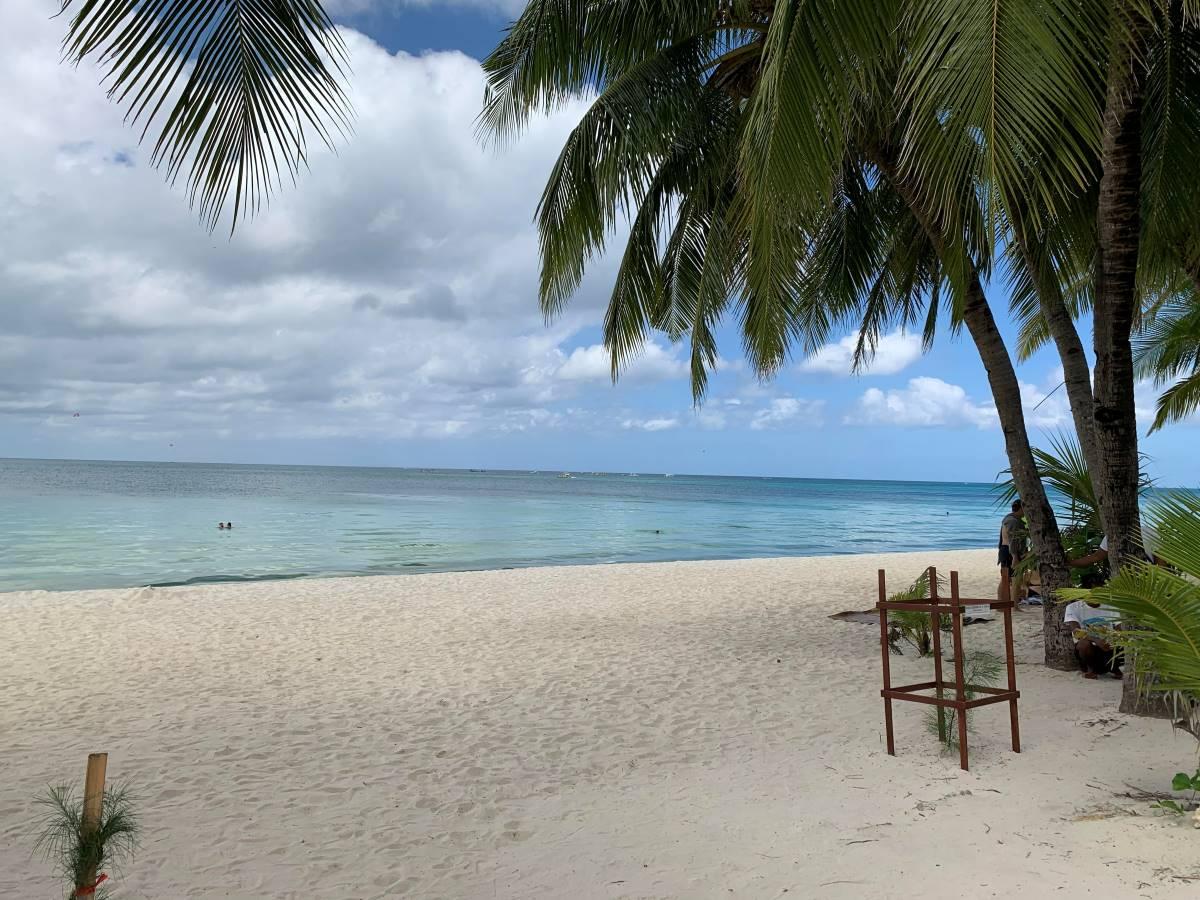Boracay land ownership proposed in House bill
By LLANESCA T. PANTI, GMA Integrated News Published April 10, 2024 12:09am A bill allowing private occupants and claimants in Boracay to own parcels of land on the white beach-adorned island has been proposed in the House of Representatives. Aklan Representative Teodorico Haresco Jr. made the pitch under his House Bill No. 10091, which […]


By LLANESCA T. PANTI, GMA Integrated News
A bill allowing private occupants and claimants in Boracay to own parcels of land on the white beach-adorned island has been proposed in the House of Representatives.
Aklan Representative Teodorico Haresco Jr. made the pitch under his House Bill No. 10091, which provides for the mode of disposition of alienable and disposable lands, and regulating the use and development of those areas in Boracay island in Malay, Aklan.
Haresco’s proposal authorizes the Department of Environment and Natural Resources (DENR), in coordination with the National Mapping and Resource Information Authority (NAMRIA) and concerned local government units, to conduct a mandatory review of the land classification under Presidential Proclamation No. 1064 to look for alienable and disposable lands for purposes of recommending to Congress any correction or reclassification.
The bill also states that once Congress, via passage of a law, determines that certain parcels of land in Boracay island are alienable and disposable and can be disposed of for agricultural, commercial, residential, and industrial purposes, the DENR will dispose of the said lands to any qualified citizens of the Philippines, subject to the limitations provided under the bill and the Commonwealth Act No. 141 or the Public Land Act.
The bill provides that individual applicants for the issuance of a free patent should establish proof that they or their predecessors-in-interest have, for at least 30 years prior to the effectivity of the measure, continuously occupied, possessed or cultivated the parcels of land applied for or have paid the real property tax thereon.
Any qualified applicant is also entitled to a tract of land not more than 12 hectares and a free patent. An original certificate of title may also be issued in the name of the applicant.
Further, the bill states that alienable and disposable portions will be excluded from the coverage of Proclamation No. 1801, Series of 1978 titled Declaring Certain Islands, Coves and Peninsulas as Tourist Zones and Marine Reserve under the Administration and Control of the Philippine Tourism Authority.
Haresco argued said that his proposal is consistent with Presidential Proclamation 1064 by then President Gloria Arroyo in 2006 which divided Boracay island to two classifications: 377.68 hectares of reserved forest land for protection purposes and 628.96 hectares of agricultural land (alienable and disposable land).
“Proclamation No. 1064 provided the necessary framework for such a mechanism and its constitutionality was sustained by the Supreme Court [in a 2008 decision]. It is now left for Congress as the High Court suggested, to flesh out an Act that would fortify this mechanism,” Haresco said.
“Subject to certain limitations, the proposed measure authorizes the DENR to dispose the alienable and disposable lands in Boracay Island while also reserving parcels of land of sufficient size and strategic location to the local governments of the Municipality of Malay and Province of Aklan, and other agencies of the national government for essential public purposes or services such as school buildings, public plazas, health centers and other improvements, including necessary roads, avenues, streets, and alleyways,” he added.
Likewise, the lawmaker said his bill provides for a non-impairment clause to safeguard the rights of marginalized groups, including the indigenous cultural communities and their right to ancestral lands.
SC on private ownership of land
While the 2008 Supreme Court (SC) decision cited by Haresco upheld the legality of Arroyo’s Proclamation 1064, it also stated that private claimants and occupants in Boracay island are not entitled to apply for judicial confirmation of imperfect title and do not have vested rights over their occupied lands because their occupied land there are not classified as alienable and disposable land of the public domain before the 2006 Arroyo proclamation.
“The burden of proof in overcoming the presumption of state ownership of the lands of the public domain is on the person applying for registration, who must prove that the land subject of the application is alienable or disposable,” the SC said.
It added, “To overcome this presumption, incontrovertible evidence must be established that the land subject of the application is alienable or disposable. There must still be a positive act declaring land of the public domain as alienable and disposable.”
In proving that the land subject of an application for registration is alienable, the high court said the applicant must establish the existence of a presidential proclamation or an executive order; an administrative action; investigation reports of Bureau of Lands investigators; and a legislative act or a statute.
The applicant, the SC said, may also secure a certification from the government that the land claimed to have been possessed for the required number of years is alienable and disposable.
“In the case at bar [involving Boracay Island], no such proclamation, executive order, administrative action, report, statute, or certification was presented to the Court. The records are bereft of evidence showing that, prior to 2006, the portions of Boracay occupied by private claimants were subject of a government proclamation that the land is alienable and disposable. Absent such well-nigh incontrovertible evidence, the Court cannot accept the submission that lands occupied by private claimants were already open to disposition before 2006,” the SC added. —LDF, GMA Integrated News














